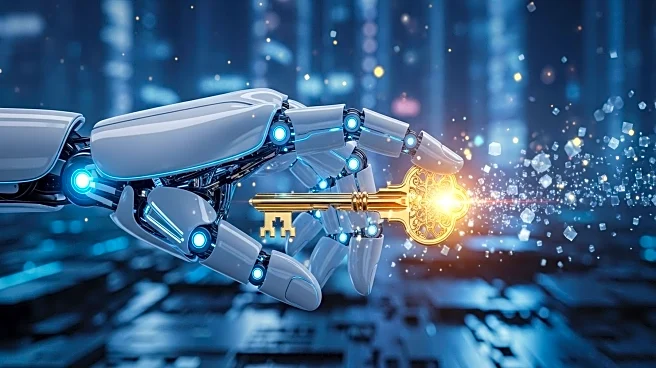What's Happening?
LinkedIn has announced the global availability of its Hiring Assistant tool, an AI-driven platform designed to aid recruiters in sourcing and screening candidates. This tool, which has been in limited use since last year, leverages AI to make the recruitment process more conversational and responsive. It performs prescreening through LinkedIn's InMail, evaluates LinkedIn profiles, resumes, and answers to screening questions, and connects with external applicant tracking systems. OpenAI, known for its development of ChatGPT, is also entering the recruitment sector with its OpenAI Jobs Platform. This platform aims to match companies with AI talent by using AI to align employer needs with worker capabilities.
Why It's Important?
The introduction of AI tools like LinkedIn's Hiring Assistant and OpenAI's Jobs Platform signifies a shift in the recruitment industry towards more automated and efficient processes. These tools promise to streamline hiring by reducing the time and effort required for candidate evaluation and matching. For companies, this could mean faster access to qualified candidates and a more tailored recruitment process. However, there is a potential downside, as a significant portion of job seekers express concerns about the use of generative AI in hiring, fearing it may overlook human nuances and lead to impersonal interactions.
What's Next?
As these AI tools become more integrated into recruitment processes, companies may need to balance efficiency with maintaining a personal touch in their hiring practices. The evolution of job boards to include AI-driven features like messaging, prescreening questions, and interview scheduling is expected to continue. Employers will likely need to address job seekers' concerns about AI in recruitment to ensure they do not alienate potential candidates. The ongoing development and adoption of AI in recruitment will require careful consideration of ethical implications and the preservation of human elements in hiring.
Beyond the Headlines
The use of AI in recruitment raises ethical questions about privacy, bias, and the potential for discrimination. As AI systems become more prevalent, companies must ensure that these tools are transparent and fair, avoiding biases that could disadvantage certain groups. Additionally, the reliance on AI could lead to a reduction in human oversight, which may impact the quality of hiring decisions. Long-term, the integration of AI in recruitment could reshape workforce dynamics, influencing how skills are valued and how career paths are navigated.









